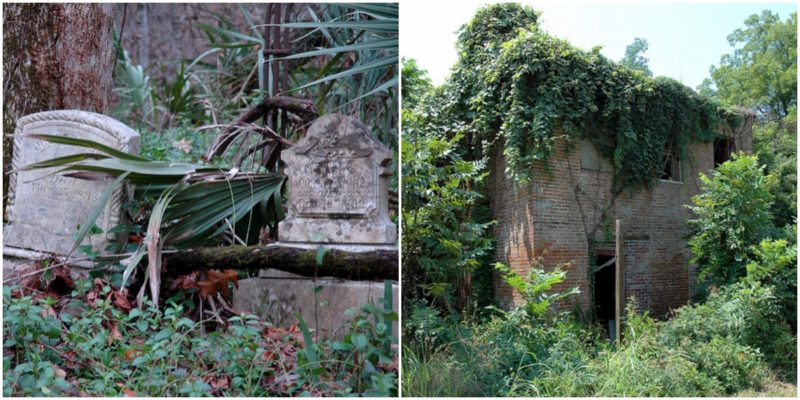Rodney is situated in Jefferson County in the southwestern part of Mississippi, United States of America. The town is not deserted completely, but most of the buildings were abandoned a long time ago.
The ghostly silence on its streets and the ruined buildings give an impression of Rodney as the most beautiful and creepiest ghost town in the world. Technically, Rodney is not a ghost town, because it still has few residents. However, the town is eerily empty and largely abandoned.
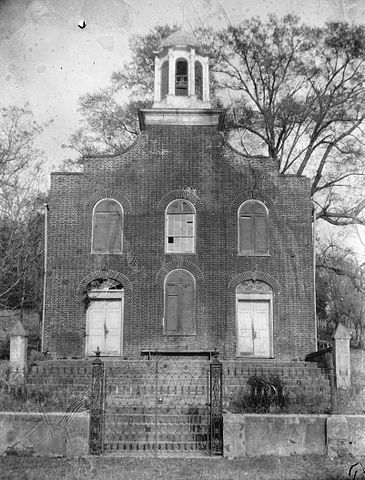
Years before a colony was established by the Europeans, the area was an essential part of the route frequently used by Native Americans in the Mississippi River Delta. But the location of the present-day town of Rodney was for the first time permanently inhabited by the French in the beginning of 1763. The settlement was named Petit Gouffre (Little Gulf), to differentiate it from the larger port town of Grande Gouffre (Grand Gulf). After a few years, the British occupied the settlement during the French and Indian War.
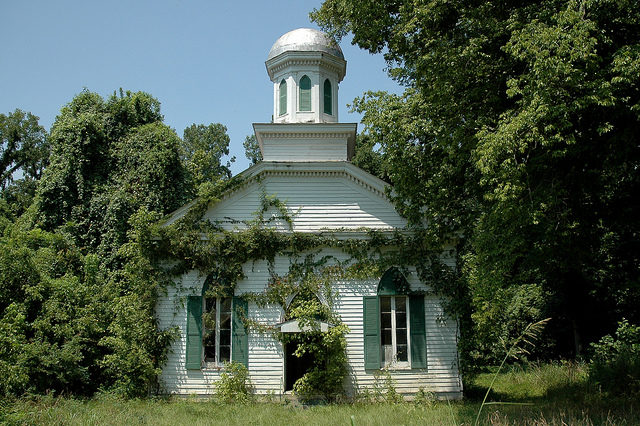
In 1781, Spain took control of the West Florida and Mississippi area from the British. At the end of the 18th century, the colonial power of Spain in this region was fading and in 1798 the Spanish Crown sold the land around the current town of Rodney to wealthy landowner Thomas Calvit. In 1814 the name of the settlement was changed to Rodney, in honor of the territorial judge, famous American lawyer, and politician from that era, Thomas Rodney.
In those days the settlements along the Mississippi River were growing, and Rodney flourished too. It immediately grew into an important, bustling river town, mainly because of its port and strategic position. Rodney officially became a town in 1828.
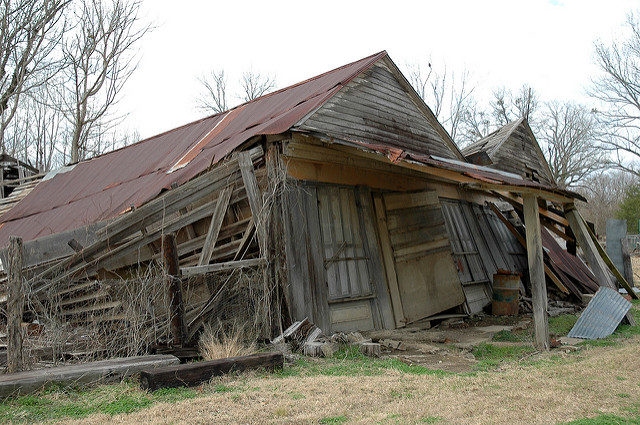
Once, Rodney was in the same league as Natchez and Vicksburg. In fact at one point the town was only three votes away from becoming Mississippi’s state capital. At its peak, Rodney was famed for its vibrant cultural life, numerous fairs, and the noisy trade activity. It became the home of more than 4,000 residents and by 1860 it had two banks, doctors, barbers, dentists, more than 35 stores and bakers, many hotels, saloons and river boat taverns, tinsmiths, and wagon makers.
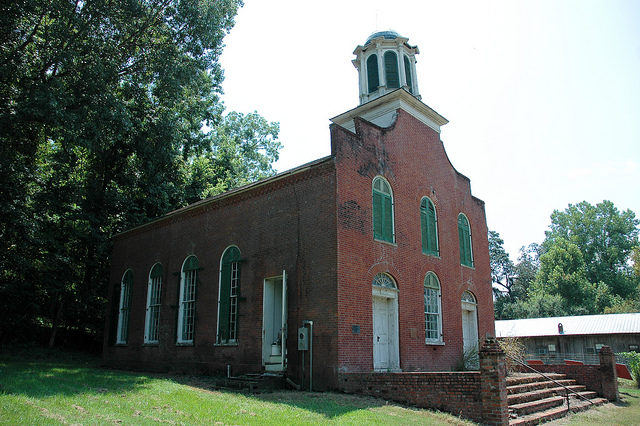
Rodney was also famed for its cultural life, it even was the site of the first opera house in the State of Mississippi. The citizens of Rodney were well educated and the literacy rate was extremely high. There were two newspapers, as well several schools and four churches. Rodney was a cultural and economic center for the state; its developed riverboat dock was a crossroads in Mississippi River trading.
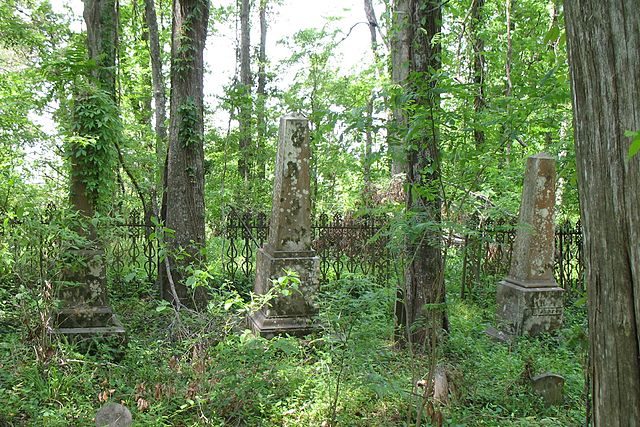
But several events changed the good fortune of the town and the number of the citizens began to decrease rapidly. The development of Rodney was stopped and things in the town made a turn for the worse. The area was devastated by two yellow fever outbreaks, which caused a vast number of death over just a few years.
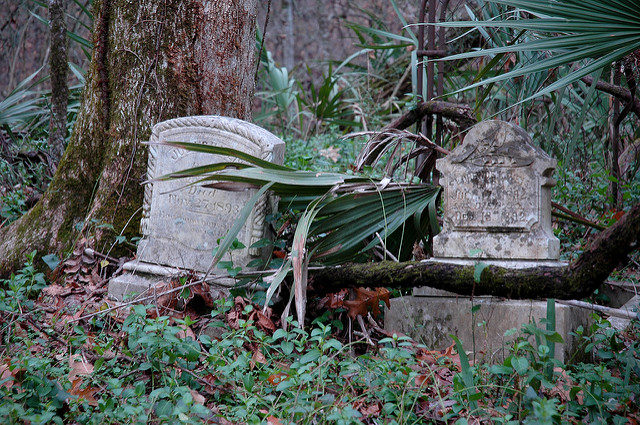
Then, during the American Civil War, the town found itself in a middle of a battle. In September 1863, the Union gunboat the Rattler was docked at port. When the captain and a few soldiers went to visit the church, they were spotted by the Confederate forces and the church was attacked. When the remaining crew on the Rattler saw that, they started bombarding the church and the town. The officer of the Confederate soldiers sent a message that if the bombing did not stop, all captured soldiers would be hanged. Thus the battle ended and the town was saved. However, many buildings were seriously damaged and traces of the attack can be still seen on the facade of the Presbyterian church: a cannonball stuck in the bricks.
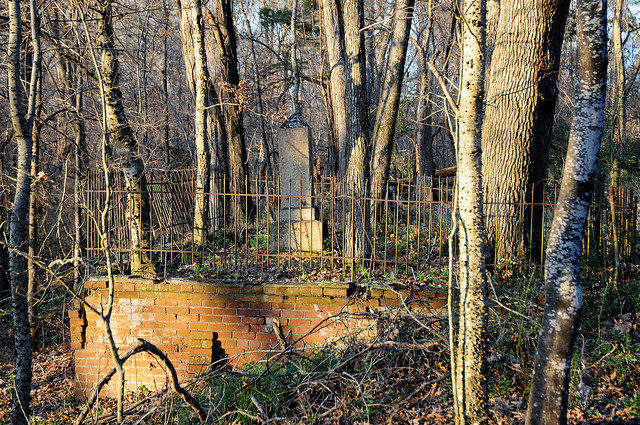
In the following years two wildfires destroyed most of the town. Later, during the rebuilding of the town, a railroad was also in a process of construction.
Because of the huge reconstruction a large ridge of sand was made in the Mississippi River. This changed the course of the river two miles west of Rodney. As a result of this intervention the area was economically ruined forever. The citizens continued to leave their homes without stopping and eventually in 1930, even though several people still lived there, it was officially removed from the list of towns.
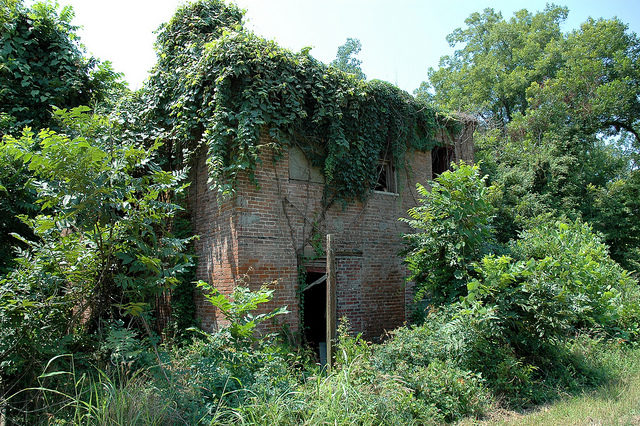
Today there are several surviving buildings that portray life of the South of the 19th century. One of them is the Presbyterian church behind which there is an old abandoned cemetery. There are hundreds forgotten graves of the citizens of Rodney and some graves of unknown river travelers, which are overgrown with trees and lush vegetation. The statues and the headstones are crumbling under the tree shadows.
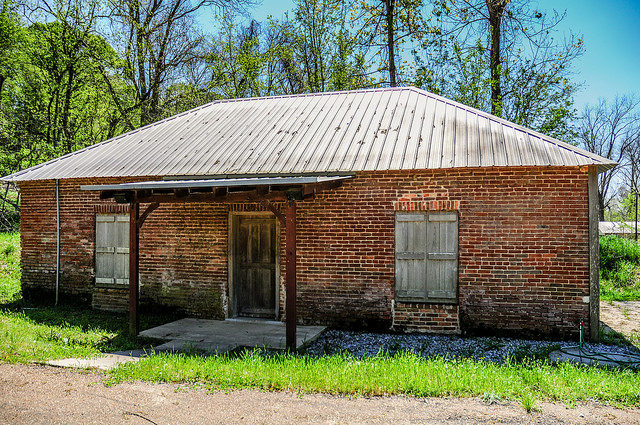
The Baptist church is still standing proudly too. The general store and two other structures, a hotel and a school house, are still here but the buildings are partially in ruins and soon it is possible that they will be totally overgrown and forgotten. After that, in the town of Rodney will remain only the pure emptiness: the sound of the wind that runs through the tress and the song of the birds.
